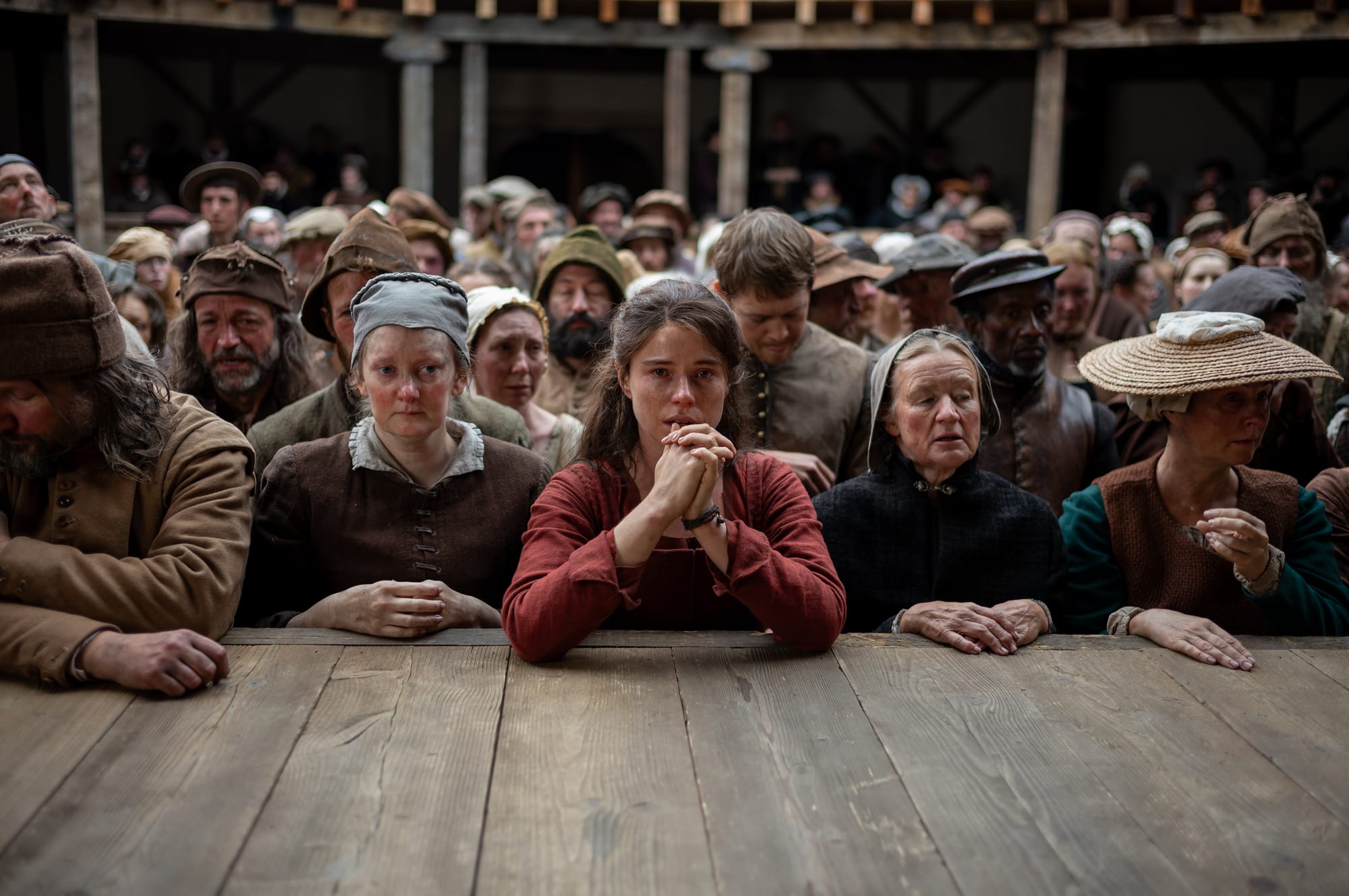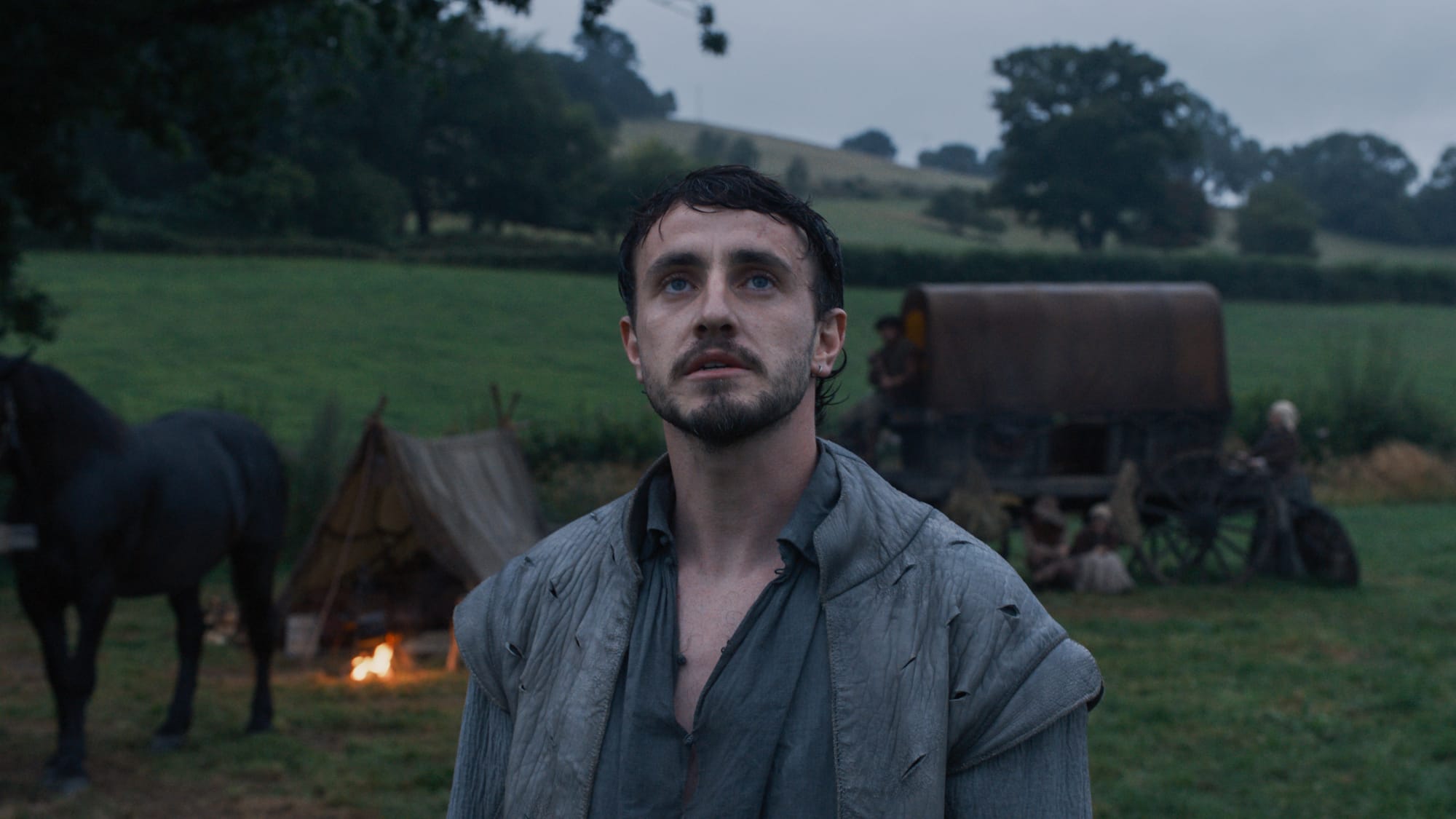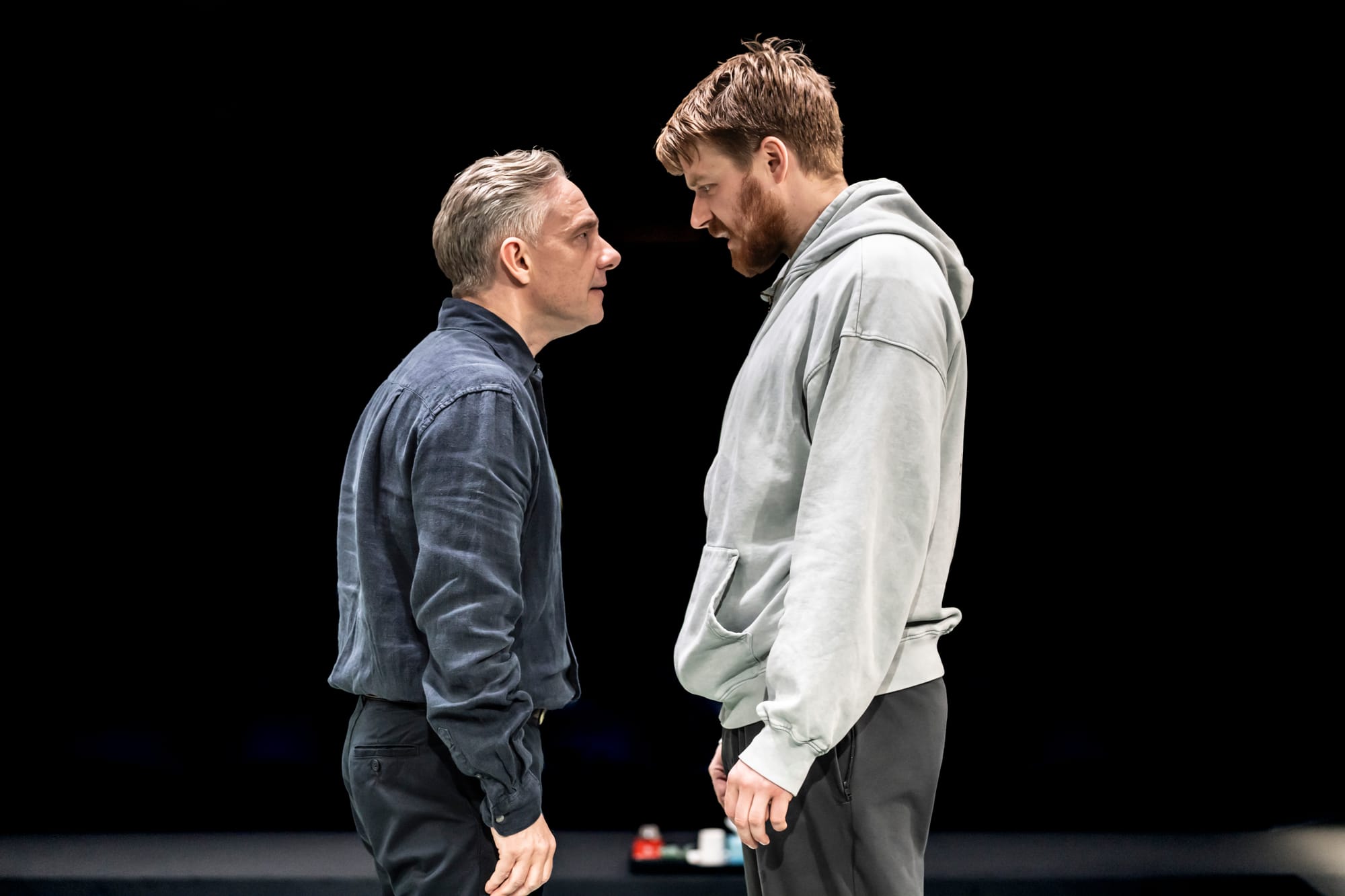Hamnet: to see or not to see? Plus The Fifth Step at National Theatre Live
Your mileage may vary on Chloé Zhao’s moody adaptation of Maggie O’Farrell’s novel, but you should see David Ireland’s powerful two-hander about addiction

I should be the ideal audience member for Hamnet (Rating: ✭✭✭), Chloé Zhao’s adaptation of Maggie O’Farrell’s novel inspired by the death of the 11-year-old Hamnet, William Shakespeare and his wife Agnes’ son, in 1596. That event supposedly inspired Shakespeare’s greatest tragedy, first performed a few years later.
I usually enjoy watching visually stunning period pictures in which characters whisper profound, poetic things in voice over (The English Patient, Days of Heaven). I’m also a sucker for the theme of art transcending and making sense of life. Plus, I was a big fan of Zhao’s previous films, Nomadland and The Rider.
But despite all that — and the film’s obvious awards pedigree (it won the People’s Choice award at TIFF) — I didn’t fully buy into the film.
The free-spirited, woodland-loving creature Agnes (Jessie Buckley) attracts the attention of William (Paul Mescal), a local lad teaching kids Latin to pay off his brutish father’s debts. Soon they’re hiking up skirts and removing suspenders to make the beast with two backs (a phrase Will would later coin), getting married (pleasing neither of their families) and raising children.
When the Black Plague hits, their daughter Judith (Olivia Lynes) is initially afflicted, but as she recuperates her twin brother Hamnet (Jacobi Jupe) comes down with it. The tragedy drives a wedge between the parents, who handle their grief in different ways, Will burying himself in work in London, where he’s earned enough from his plays that he’s bought the biggest house in Stratford-upon-Avon, Agnes shaking with paroxysms of sadness at that home.
Zhao, along with her co-screenwriter O’Farrell, opt for a dreamy, poetic narrative that’s heavy on vignettes and portentous imagery, light on character- and relationship-building. Why do Agnes and Will love each other, again?

The couple’s situation is vague enough that audiences can project their own feelings of loss and guilt onto them — Agnes letting all her emotions out, Will drowning himself in work to avoid feeling his feelings.
The thing is, Will is the greatest playwright alive, and instead of talking about them he channels his emotions into his art. This, of course, leads to an extended, moving section in which Agnes, accompanied by her brother Bartholomew (Joe Alwyn), attends a performance of her husband’s new play at the Globe Theatre.
Buckley and Mescal have very different acting styles, but they mesh well here.
There’s a touch of madness and magic about Buckley’s Agnes, who would rather give birth to her children in the forest than deliver them safely at home with a midwife. I didn’t quite believe a scene in which her character seems confused about the purpose of theatre (wouldn’t Will have told her about what he’s spending his time doing?). But Buckley, her focus never wavering, sells it.
Mescal, meanwhile, is more internal and brooding. Zhao makes great use of his noble Grecian profile for scenes in which he is lost contemplating deep things.
Since the picture’s festival appearances, I’ve heard of people openly weeping at the film, especially during the play-within-the-movie featuring Noah Jupe (the older brother of the actor playing Hamnet) as the Danish prince, Hamlet. I may have joined them in the big emotional climax if it weren’t for composer Max Richter’s mournful, manipulative “On the Uses of Daylight,” which has become so overused in films it’s become this generation’s Adagio for Strings.
Hamnet opens on screens November 27

The Fifth Step will get you addicted to National Theatre Live
If you’ve never seen a play or musical through the NTL screenings at cinemas, David Ireland’s powerful two-hander The Fifth Step (Rating: ✭✭✭✭) is a great place to begin.
Luka (Jack Lowden, from Slow Horses) is an alcoholic who’s recently joined Alcoholics Anonymous. Jittery, jangly and hyped up on caffeine, he asks the staid, buttoned-down James (Martin Freeman, Sherlock and The Hobbit), who’s been sober for some 25 years, to be his sponsor. The latter agrees.
And so begins a play that’s equal parts psychological drama, odd couple comedy and exploration into the darker, secretive aspects of human behaviour.
The title refers to the stage in AA’s 12-step program in which members confess the nature of their wrongs, acknowledging the harm their addiction has caused to themselves and others.
That proves a great dramatic prompt, not just for Luka, who’s working his way up the steps, questioning the spiritual aspect of the program until he admits to a hilarious encounter with Willem Dafoe (or his doppelgänger) at the gym, but also for James, whose behaviour is not as stable or honest as he initially says.
Performing on a mostly bare stage consisting of a table and a couple of chairs, the actors are marvellous. Lowden’s Luka makes a palpable shift from angry young man and potential incel to someone with real insights into himself. James, measured and calm in the first scenes, begins to unravel when Luka pushes particular buttons. Look for some fascinating scene transitions, evocatively lit by Lizzie Powell.
Because of director Finn den Hertog’s in-the-round staging, there’s literally nowhere for the actors to hide. They’re completely exposed. And the NTL cameras are there to pick up every nervous twitch, meaningful shrug and glare as the two men confront their demons.
The Fifth Step screens Nov. 27 and 30 at 40 cinemas. Additional showtimes will be available at select theatres. Ticket info here
Coming up: Reviews of holiday musicals (Shrek The Musical, The Unauthorized Hallmark(ish) Parody Musical, Robin Hood: A Very Merry Family Musical, The Sound of Music), Merrily We Roll Along, a profoundly affectionate, passionate devotion to someone (-noun), and more
